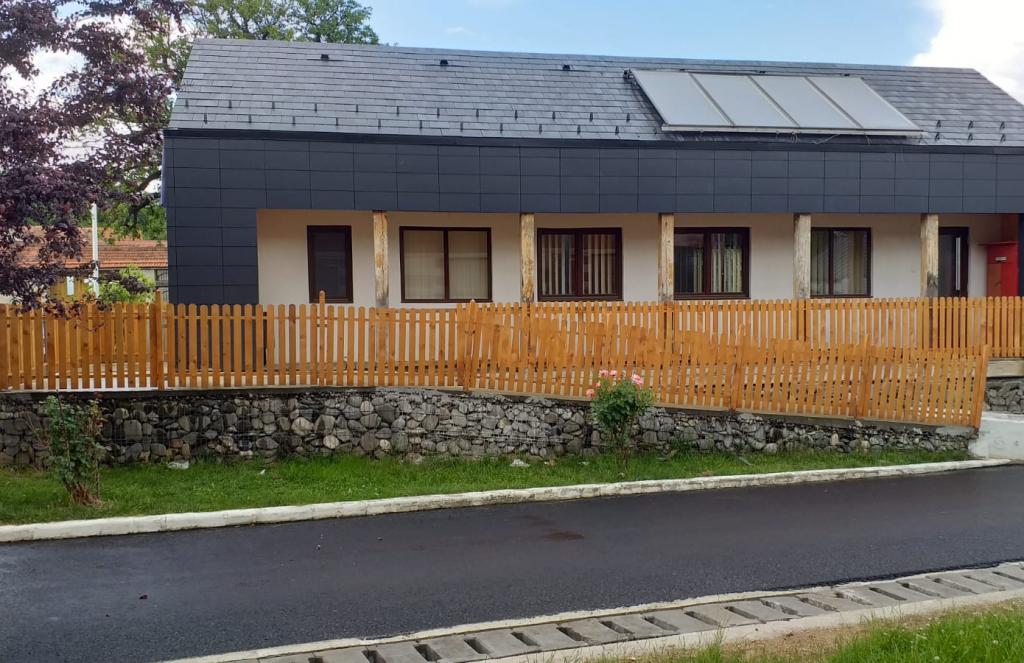Thessaloniki gets ready for its metro launch in November
The underground rapid transit lines have been under construction for almost two decades due to various project delays
 TheMayor.EU logo
TheMayor.EU logo 
Only 4.9% of Romanians over the age of 65 have daily contact with their friends, Source: Slatina-Timis Municipality
The Slatina-Timiș social centre for the elderly is set to open in August
Slatina-Timiș in Romania is getting a new social centre for the elderly, financed from the European Regional Development Fund (ERDF). The total investment sits at 298,000 euros and the centre is expected to be completed by 31 August 2021.
The project previews the redevelopment, thermal insulation and modernisation of the municipally-owned building. These activities will be managed by the Community Social and Medical Assistance Department under the jurisdiction of Slatina-Timiș Town Hall. For its part, the mayor’s office is an accredited provider of social services by the Ministry of Labour and Social Justice.
The financing was procured through the Regional Operational Program for Romania and co-financed by the European Union through the ERDF. Some of the broader goals of the program include making Romania a more attractive place to live and work.
The key areas that the programme will address are part of the major development challenges for the country: regional competitiveness, sustainable urban development, the low-carbon economy, and economic and social infrastructure at the regional and local levels.
Romania’s population has been slowly declining since 1991 and currently stands at around 19.1 million. At the same time, according to data from Eurostat for 2018, the portion of the population over 65 is about 18%. This is relatively good news because it is lower than the EU average (19.7).
However, projections for the next 30 years look rather dire, as it is expected that the elderly in Romania will make up 29.9% of the population, compared to 28.5 in the EU overall.
At the same time, life expectancy in Romania is lower than the EU's average. According to the study, women in the EU can expect to live around 86 years and men - approximately 83. Romanian figures are about three years less for women and four for men.
Furthermore, Romania ranks second in the EU per number of elders with disabilities. A whopping 80% of the country’s elderly have disabilities, either related to walking, vision or hearing. The situation is further exacerbated by the fact that 20% of people over 65 are struggling to make ends meet.
On a lighter note, 19.3 % of those over 65 have daily contact with their family members, a ratio very close to the EU average (19.2 %). In the case of friends, however, the situation is much worse: Only 4.9% of Romanian elders have daily contact with their friends.
All these figures combine and paint a grim picture of the situation of the elderly people in Romania. This is why the establishment of the social centre is a glimmer of hope for the community and for people approaching the age of 65.
If you want to keep up with how European cities and regions are changing, follow us on Facebook, Twitter and Instagram.

The underground rapid transit lines have been under construction for almost two decades due to various project delays

Now you can get your wine in Talence by paying directly in Bitcoin

That’s because the state has to spend money on updating the railway infrastructure rather than subsidizing the cost of the popular pass

Rethinking renewable energy sources for the urban landscape

The examples, compiled by Beyond Fossil Fuels, can inform and inspire communities and entrepreneurs that still feel trepidation at the prospect of energy transition

Now you can get your wine in Talence by paying directly in Bitcoin

The 10th European Conference on Sustainable Cities and Towns (ESCT) sets the stage for stronger cooperation between the EU, national and local level to fast track Europe's transition to climate neutrality.

At least, that’s the promise made by the mayor of Paris, Anne Hidalgo

The underground rapid transit lines have been under construction for almost two decades due to various project delays

At least, that’s the promise made by the mayor of Paris, Anne Hidalgo

Hostal de Pinós is located in the geographical centre of the autonomous region

Despite its church-y name, the district has long been known as the hangout spot for the artsy crowds

Urban dwellers across the EU are having a say in making their surroundings friendlier to people and the environment.

Forests in the EU can help green the European construction industry and bolster a continent-wide push for architectural improvements.

Apply by 10 November and do your part for the transformation of European public spaces

An interview with the Mayor of a Polish city that seeks to reinvent itself

An interview with the newly elected ICLEI President and Mayor of Malmö

A conversation with the Mayor of Lisbon about the spirit and dimensions of innovation present in the Portuguese capital














